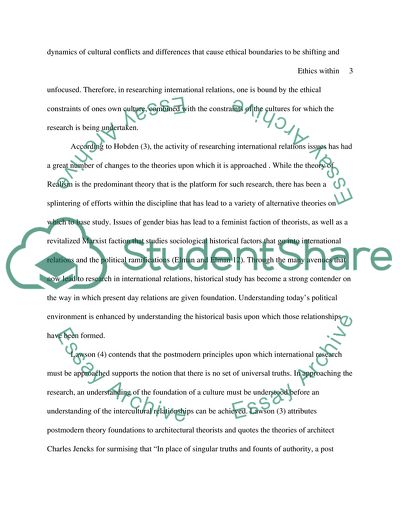Cite this document
(Ethics within the Study of International Relations Literature review, n.d.)
Ethics within the Study of International Relations Literature review. Retrieved from https://studentshare.org/ethics/1732580-how-can-ethical-issues-and-considerations-shape-and-limit-international-relation-research
Ethics within the Study of International Relations Literature review. Retrieved from https://studentshare.org/ethics/1732580-how-can-ethical-issues-and-considerations-shape-and-limit-international-relation-research
(Ethics Within the Study of International Relations Literature Review)
Ethics Within the Study of International Relations Literature Review. https://studentshare.org/ethics/1732580-how-can-ethical-issues-and-considerations-shape-and-limit-international-relation-research.
Ethics Within the Study of International Relations Literature Review. https://studentshare.org/ethics/1732580-how-can-ethical-issues-and-considerations-shape-and-limit-international-relation-research.
“Ethics Within the Study of International Relations Literature Review”. https://studentshare.org/ethics/1732580-how-can-ethical-issues-and-considerations-shape-and-limit-international-relation-research.


